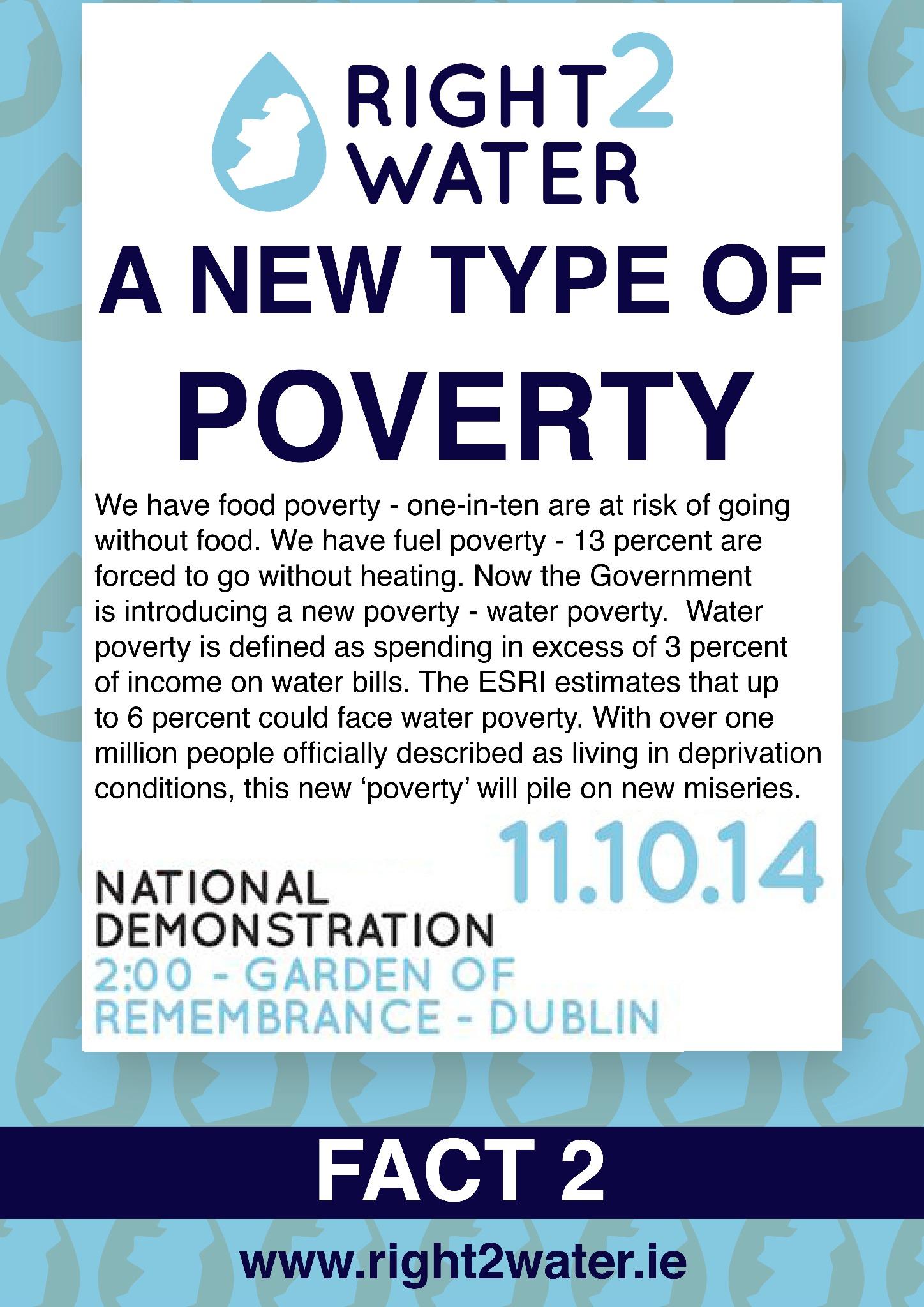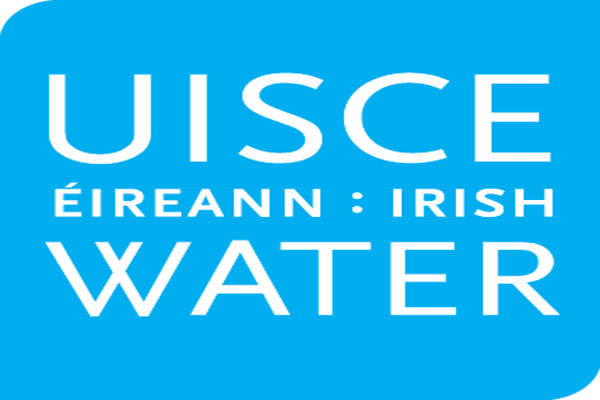
Last week I touched upon the new Troika-imposed water-tax that it is being rolled out across the country by the Fine Oibre coalition, despite considerable public opposition and criticism. This article by Kathleen Lynch, professor of equality at UCD’s School of Social Justice, from the Right2Water campaign highlights the iniquitous basis of the water-charges:
“The existence of water is not owed to any human accomplishment. Humans do not create water. If it stopped raining and if our rivers and springs (and seas) ran dry, we could not produce water ourselves. While the state (via Irish water) may claim ownership of the network that delivers water, neither Irish water nor the State produces water. Water is a given from nature and is a collective good that is collectively owned.
Humanity collectively owns the earth; in the sense that no individual or group produced the earth, so it is collectively owned. Water is produced by the earth and in that sense it is not owned by persons or institutions. It is a public good that cannot and should not be commodified, commercialised or privatised. And it is the duty of the State to protect people’s right to safe, secure, accessible, affordable water.
What I am saying here is that, what is a public good cannot and must not be turned into an investment (profit-making) opportunity for multinational corporations.
Yet, the introduction of a market relationship in the delivery of water in Ireland is a step in the direction of privatisation and commercialisation. It redefines water from being a public good, provided and protected through general taxation, to being a personal service that can be removed if one is unable to pay. It represents the first step in diminishing a person’s human right to water.
What many Irish people do not know is that the commercialisation of water is very much part of European Commission policy (Competition Commissioner) The Concession Directive states that ‘the market for water supply should be opened up’. This is a clear statement of intent to commercialise water and undermine people’s human rights to its usage.
Moreover, under the bailout programme set up by the Troika in Portugal, the commercialisation of the water supply was a requirement. Similar demands were made for commercialising water supplies in Athens and Thessaloniki in Greece. If the ECB and IMF can force Portugal and Greece to make hand over water to commercial interests, what is to stop them making it happen in Ireland at some future time? Indeed what is to stop the Irish government from selling off Irish Water as a revenue-making option?
The privatisation of water has happened already in England, where most water is owned and delivered commercially. In France as well, some 70% of the water supplied is commercially owned. However, it is interesting that the City of Paris re-municipalised (returned it to public ownership and control) its water supply in 2008 due to rising costs from commercial operators. The cost of water had increased in real terms by 265% over a 23 year period (from 1985-2008). In the first year of re-municipalisation, the City Council of Paris itself saved approximately €35 million in water charges and the overall costs of water were reduced by 8% for householders. Buenos Aires and Kuala Lumpur are also major global cities that have re-municipalised their water supplies due to the rising costs of water with commercialisation.”
For more details on the upcoming national demonstration against the charges to be held on Saturday the 11th of October in BÁC please go to the Facebook Event page. The website of the non-party political organisation Right2Water can be found here, or on Facebook and Twitter.

Both my parents grew up in houses without any running water. You had to use the pump down the street, or the water barrel in the back yard. And both my parents considered themselves middle class in comparison with most of the families around them. Everything is relative. Water supplies have to be paid for somehow. I’m sure all these folks giving the Garda a hard time have cable TV, 300 satellite channels and broadband in the house.
Even if you are unemployed – and I accept plenty of people are unemployed through no fault of their own since 2008 – Irish welfare payments are pretty damn generous by most European standards.
LikeLike
Irish Examiner, April 2014:
“More than 750,000 people are living in poverty in Ireland, including 220,000 children and 68,740 pensioners — with the gap between the poorest and richest increasing since the recession began.
Latest details from the CSO show that in 2012, the most up-to-date figures available, 756,591 people were living in poverty in Ireland.
The rate includes 68,740 people over the age of 65 and 220,411 under the age of 18, highlighting the wide-reaching impact of a half-a-decade long recession on the population.
Between 2007 and 2012, the number of Irish people living in “consistent poverty” almost doubled, from 4.2% of the population to 7.7%. Those experiencing two or more forms of “enforced deprivation” almost trebled during the same era, from 11% to 27%.
The CSO files also show that in the same period, the gap between the richest and poorest 20% of the population increased by more than 11%.
Meanwhile, the CSO show that 6% of people working in 2012 were still living in poverty, and that half of people living in below average private rented accommodation are at risk of poverty.”
LikeLike
what is their definition of poverty?
LikeLike
Saying that there is poverty in Ireland is insulting to people that are actually poor.
LikeLike
With all due respect, Jānis, you need to get outside the white-collar high-wage bubble a bit more. There is real and consistent poverty in this country and it is increasing not decreasing. If it were not for the “safety-valve” of forced emigration things would be far worse even in the most salubrious of areas.
LikeLike
You are saying that to someone who earned less than Irish minimum wage before immigrating to Ireland.
LikeLike
And I have earned considerably less than Irish minimal wage in my time. To argue that there is no poverty in Ireland is ridiculous. People may not be starving in the ditches or incarcerated in work-houses but that does not mean that serious poverty does not exist on this island nation, however relative it may be.
LikeLike
What’s the definition of poverty here?
Not being able to go on holiday abroad?
LikeLike
A Young Mother Dies of Hypothermia in Ballymun: Rachel Peavoy R.I.P.
LikeLike
That’s a tragic accident.- partially caused by negligence of Dublin City Council.
But what has it to do with poverty?
LikeLike